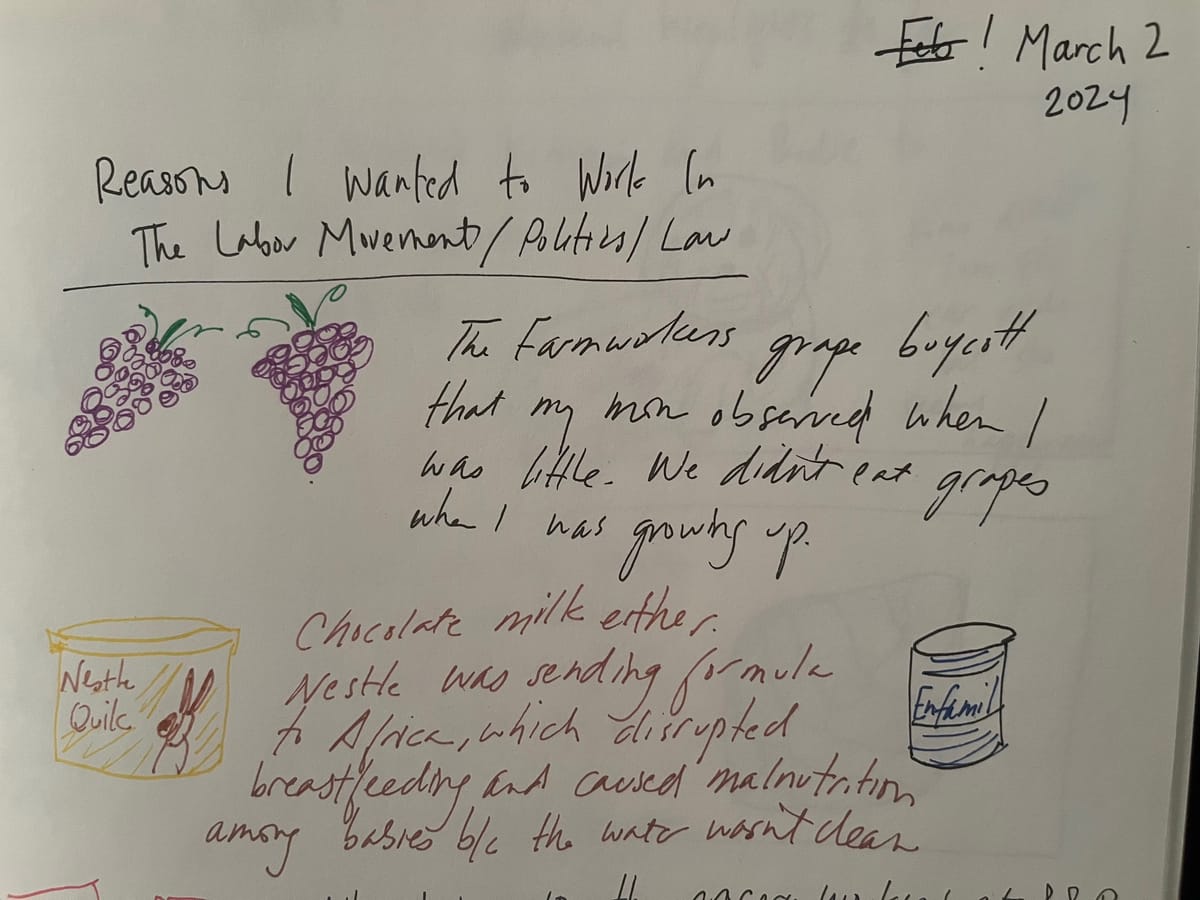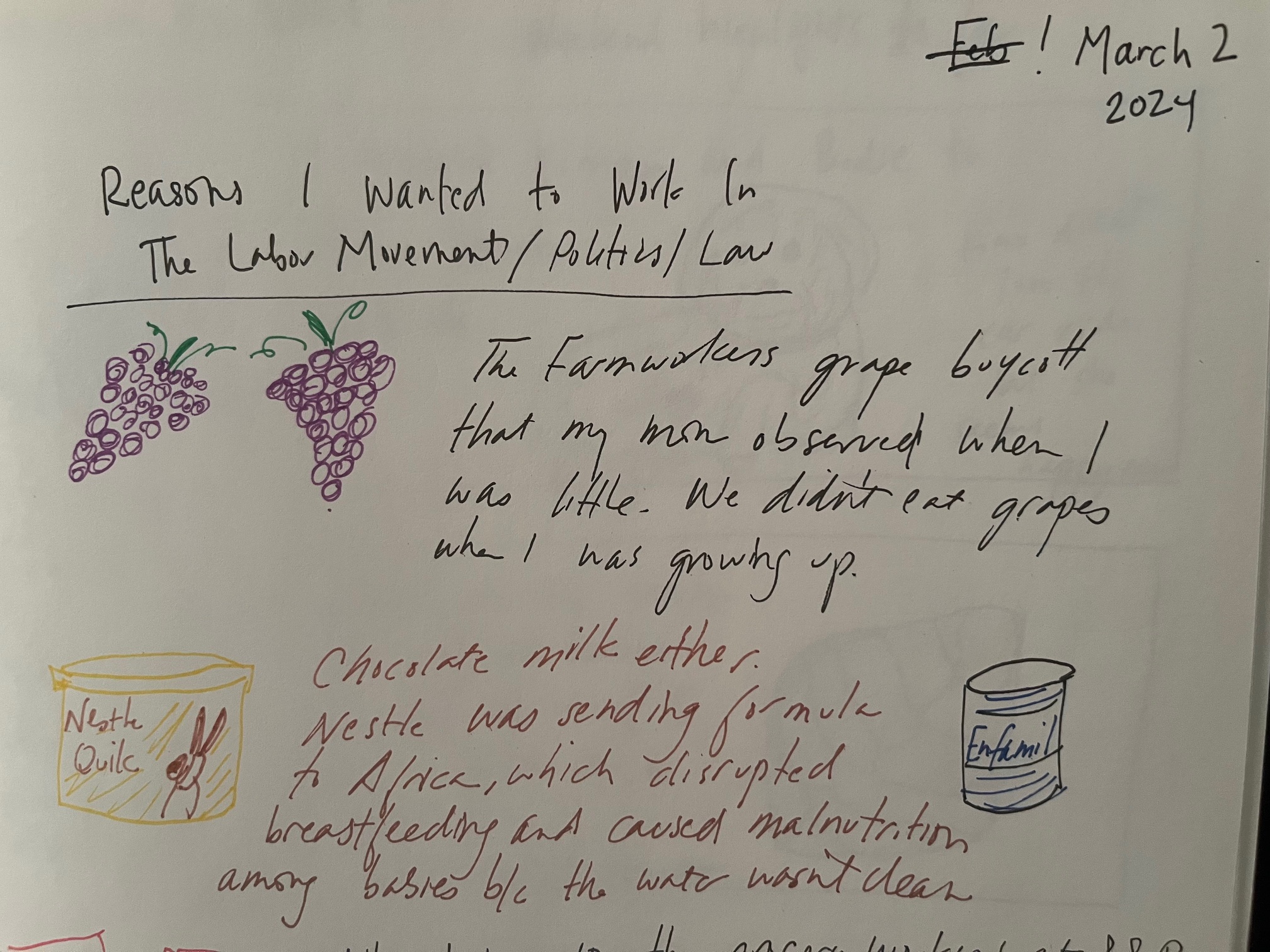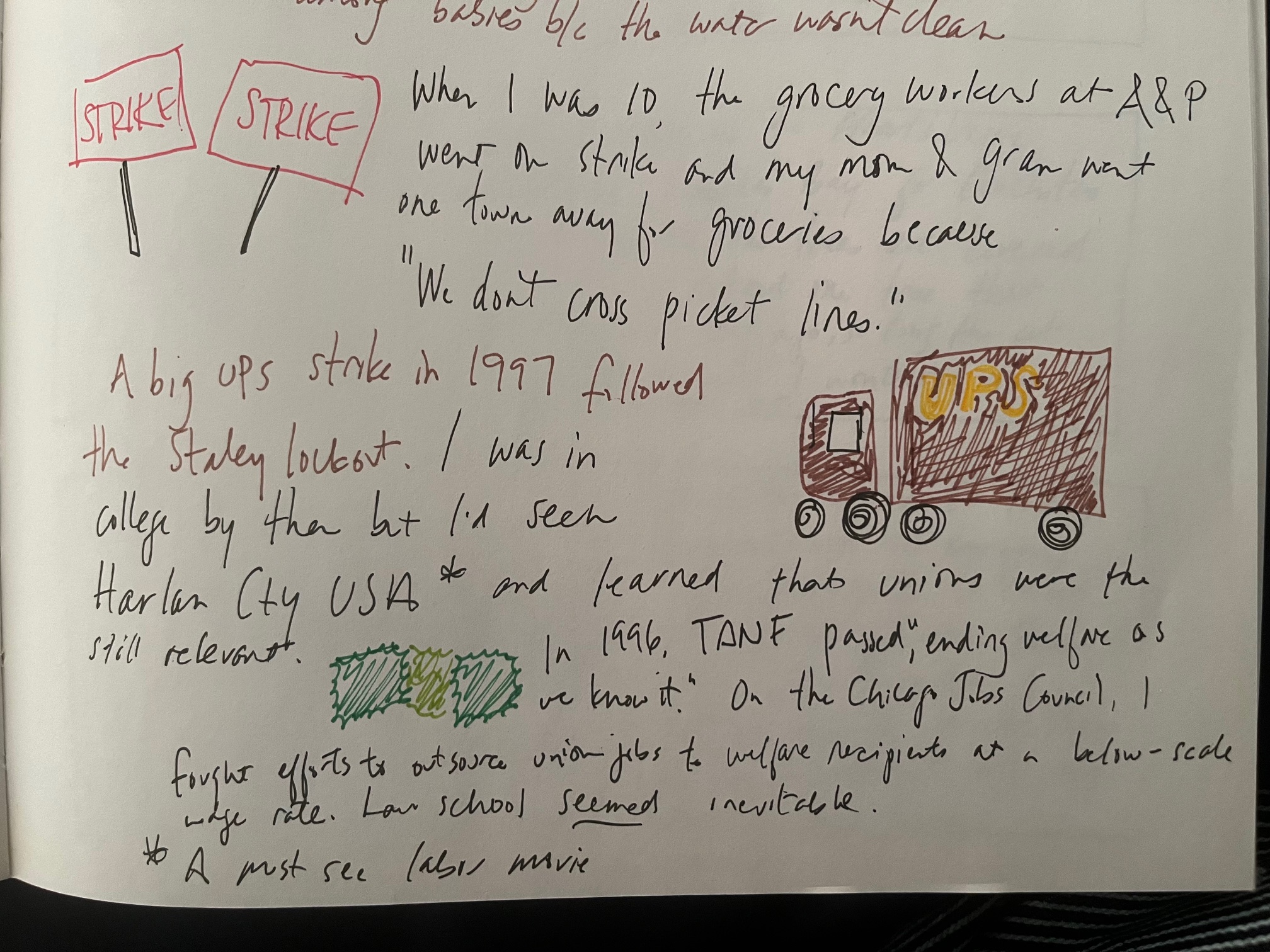Reasons I Wanted to Work in the Labor Movement and Politics
My first comic and also a memoir excerpt

A few days ago, I heard Sherilynn Ifill, former President of the NAACP Legal Defense Fund, speak about her Scholar in Residence appointment with the Museum of Modern Art in an interview on Strict Scrutiny podcast. Ms. Ifill spoke of the need for lawyers to reflect on the objects that guide our legal principles. She was speaking, I think, of the Constitution, as well as personal relics that inform her personal work with the NAACP and now the 14th Amendment project she is leading at Howard University Law School. It got me thinking about what objects underly my legal career, so I drew a little comic about it. I hope you can read my handwriting in these pictures.


Surprisingly, I forgot another incident that was pretty formative in my political consciousness that is laden with memorable objects. Here’s an excerpt from my memoir about my father’s 1982 campaign for Congress.
From Chapter 29:
My dad, on the other hand, had made his political views known since I was young. After Ronald Reagan was elected, my dad took Lorin and me to Libertarian meetings, buoyed by John Anderson’s relative success as an independent candidate. My father and about a dozen other men - all the Party Libertarians were men - would sit around and argue. A local party leader named Arthur always hosted and he and my dad would argue the loudest. My sister and I would sit at the kitchen table and read or color.
Arthur owned a black Capuchin monkey that lived in one of the bedrooms. Technically the monkey lived in a cage, but the cage was built from wire fencing to the dimensions of the room. It was furnished like a spare prison cell. The first time we went to Arthur’s house, he showed us the monkey. The monkey began screaming, and threw an empty plate at us as we stood in the doorway. The plastic plate bounced off the wire door, which enraged him further, and he began to howl. Dried poop, half rubbed away, clung to the wire and wall.
The monkey’s terrifying cell was between the kitchen and the bathroom, so no matter how badly we needed to pee, my sister and I never moved an inch off our seats in the kitchen. The whole night, two tiny girls sat silently, eyes wide, hearts pounding, listening to men argue while a monkey screamed in a cage nearby.
One night, Arthur’s children were there too. They were dingy-looking kids with mean eyes and too-small clothes who would not play with us. Our dad said that their mom had moved out on Arthur. They had been dumped here for the night like we had. They stayed in another room, closer to the bathroom, and didn’t invite us to play.
Despite the arguing, the Libertarians agreed that my father was their candidate for the 1982 Congressional race. They pooled some money to print “Laiacona for Congress” signs and buttons. The campaign materials were green with white lettering and featured the Statue of Liberty. A candidate and some promotional materials were all the campaign infrastructure they thought they needed to run a winning campaign for Indiana’s 3rd Congressional District.
My dad’s biggest campaign event was to enter the Huntington Heritage Days Bed Race. In a bed race, people affix wheels to a bed and, with one person on the bed yelling like a coxswain, one person at each corner of the bed pushes. My father put little casters on a four-poster bed and covered it with campaign signs. My dad’s plan was to run alongside the bed, waving and handing out campaign buttons. The Libertarians who were supposed to push the bed bailed at the last minute, so he enlisted a few neighbors and a co-worker to help. His boss Rick Ford had an injury that prevented him from pushing the bed, but volunteered his teenaged daughter to be the coxswain.
It was a muggy and overcast June day when my father drove the bed over in the back of his pick-up truck. My mom, a registered Democrat but a supportive wife, lined up with my sister and me near the starting line to cheer. There were eight beds racing.
Once the beds were in position, a cap gun went off. We yelled and cheered but within seconds the Laiacona for Congress bed had lost a caster at the front. The runners at the back of the bed didn’t realize what had happened, and kept pushing, which sent the bed spinning on its other front caster.
The coxswain screamed. My father stopped greeting the crowd, who were laughing and pointing at his bed, which was adrift in the street while the other beds sailed in straight lines. My dad dropped his bag of buttons and ran to the bed to lift the post that had lost its wheel. The bed tipped further off balance, which sent the coxswain into hysterics. Even as an eight year old, I knew that this was not the impression my father had hoped to leave on the voters. I looked at my mother, who was shaking her head, lips tight.
The campaign posters disappeared from everywhere except my grandparents’ garage in Albany, where they influenced not a single Indiana voter. My father moved on to other projects, probably involving the flings he had on his business trips, and spent his political energy bothering my mother about who she was voting for. In 1984, he sent a letter telling her to vote for Ronald Reagan, so their taxes wouldn’t go up.


